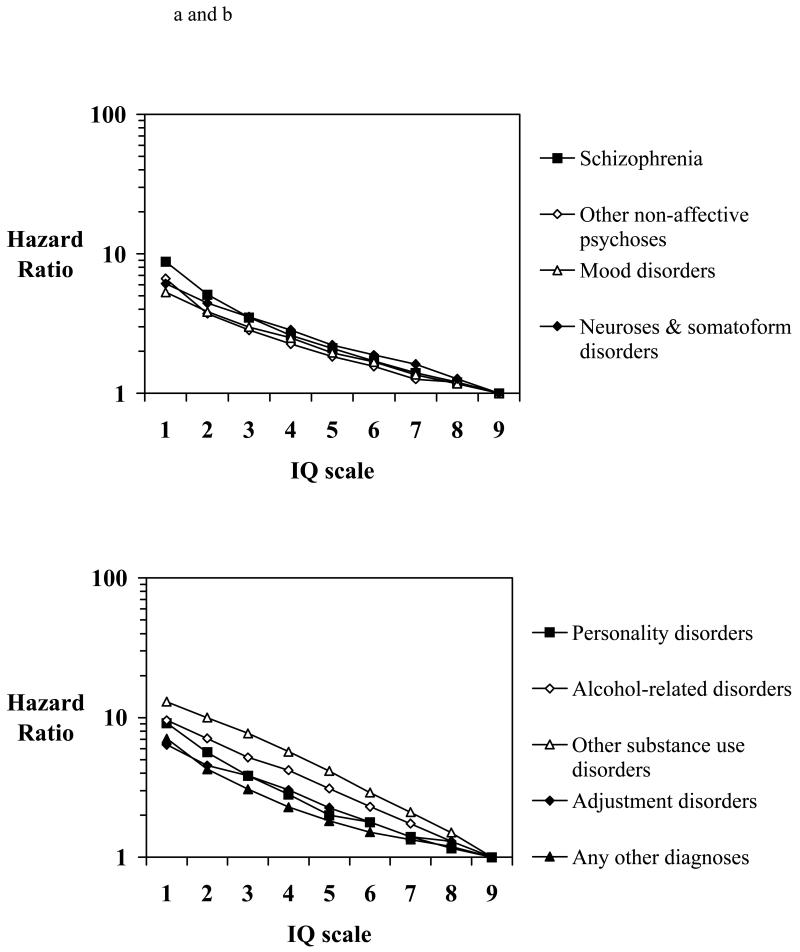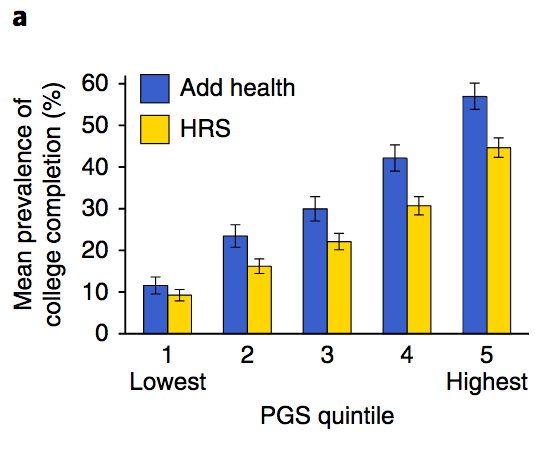Criminology
The Dangers of Ignoring Cognitive Inequality
Despite the fact that low IQ is correlated with negative outcomes in a large number of areas and afflicts around 15 percent of the population, we seem incapable of treating it like any other public health problem.

On Sunday 28 April 1996, Martin Bryant was awoken by his alarm at 6am. He said goodbye to his girlfriend as she left the house, ate some breakfast, and set the burglar alarm before leaving his Hobart residence, as usual. He stopped briefly to purchase a coffee in the small town of Forcett, where he asked the cashier to “boil the kettle less time.” He then drove to the nearby town of Port Arthur, originally a colonial-era convict settlement populated only by a few hundred people. It was here that Bryant would go on to use the two rifles and a shotgun stashed inside a sports bag on the passenger seat of his car to perpetrate the worst massacre in modern Australian history. By the time it was over, 35 people were dead and a further 23 were left wounded.
Astoundingly, Bryant was caught alive. He was arrested fleeing a fire at the house into which he had barricaded himself during a shootout with the police. He later pled guilty to a list of charges described as “unprecedented”by the standing judge, and was sentenced to life in prison without the possibility of parole, thus sparing his victims and other survivors the suffering (and perhaps the catharsis) of a protracted trial. Yet, in spite of his guilty plea, Bryant did not take the opportunity provided by his official statement to offer any motive for his atrocities. Instead, he joked “I’m sure you’ll find the person who caused all this,” before mouthing the word ‘me.’ Intense media speculation followed, the main focus of which was Bryant’s history of behavioral difficulties. These were offered as possible evidence of a psychiatric disorder such as schizophrenia (which would have been far from sufficient to serve as a causal explanation for his crimes). However, the most notable and concrete fact of Bryant’s psychological condition was his extremely low IQ of 66—well within the range for mental disability.

IQ scores are classified in a number of ways, all of which are broadly similar. The Wechsler Adult Intelligence Scale (WAIS-IV) establishes seven categories of IQ scores. Most of us fall into the ‘Average’ band, constituted by the 90-109 range. Those achieving scores of 130 or higher are considered ‘Very Superior.’ Conversely, scores of 69 and under are classified as ‘Extremely Low,’ and automatically qualify the scorer for a diagnosis of ‘mild retardation’ according to the APA’s Diagnostic and Statistical Manual of Mental Disorders. It is into this band that Bryant’s score falls.
The connection between intelligence and behavioral problems, such as Conduct Disorder (CD) or Antisocial Personality Disorder (APD), was well-known around the time of the Port Arthur Massacre. A review by biostatistician and UCSD professor Sonia Jain cites contemporaneous studies to suggest that low IQ scores in childhood should be considered a risk factor for APD and CD. In 2010, several psychologists published results from a longitudinal study containing data on over a million Swedish men, who were tracked from conscription for a little over 20 years. They found that IQ scores tested during conscription were a significant and robust predictor, not only for APD or CD, but for all categories of mental disorders. Conscripts with low IQ were substantially more likely to be diagnosed with one or more mental disorders, to suffer from mood and personality disorders, and to be hospitalized for mental illness. Those in the lowest band—like Bryant—were most at risk of severe psychological disorders.

While these correlations are concerning, they do not offer an explanation for Bryant’s atrocities. In a population where intelligence is normally distributed with a mean of 100, a little over two percent of people would attain IQ scores close to Bryant. A further 15 percent would receive IQ scores somewhere below 84—well beyond the threshold for disqualification in the Armed Forces Qualification Test (AFQT), used to determine suitability for admission into the US Army until 1980. Careers for those below this level are extremely rare—a fact that might help explain the correlation between low IQ and an enhanced risk of criminal offending, given the scarcity of well-paid jobs for those with an IQ of below 84.
But much of this correlation is due to street-level petty and violent offenses, not mass murder, and it would be abhorrent—obscene, even—to suggest that people with a low IQ should be treated with suspicion, or as murderers-in-waiting. In almost all cases, these individuals pose a risk to no one but themselves, and are more likely to fall prey to victimization by others. On the other hand, it is equally irresponsible to ignore the specific difficulties which those with a low IQ face. The consequences of this wishful thinking—however noble in intent—can be devastating.
Perhaps the best example is offered by the recent history of the Cold War. While the American military-industrial complex was sufficiently sophisticated to provide the United States with all the arms and armaments it could possibly hope for, there are always things that money cannot buy. In this case, it was bodies—young American men needed to fight on the ground in 1960s-era Vietnam, where they found the most unforgiving of battlefields among the region’s unassuming jungles and innocuous rice paddies. The unusually high attrition rate of soldiers posted there, as well as the frequent use of student deferments or feigned illness to dodge the draft (President Trump’s excuse of ‘temporary bone spurs’ constitutes one particularly famous example), resulted in a shortage of men which meant that more troops were needed than the nation was able to supply.
The government was confounded by this problem for some time, attempting halfhearted crackdowns on draft dodgers as a temporary solution, until Secretary of Defense Robert McNamara arrived at a more permanent workaround. The US government would draft men whose low IQ scores had hitherto disqualified them from military service. This stratagem—codenamed ‘Project 100,000’—is detailed along with its dreadful consequences in the book McNamara’s Folly by the late Hamilton Gregory. Gregory witnessed the fate of the low-IQ draftees firsthand while he was a soldier in Vietnam. These draftees—cruelly nicknamed ‘McNamara’s Morons’—were generally capable of completing simple tasks, but even a simple task imperfectly executed can be disastrous in warfare.

A case study in the book is ‘Jerry’ (not his real name). Jerry was a draftee from the 100,000 who had been assigned guard duty in a camp by the Quan Loi Green Line. Jerry’s task was to challenge anyone approaching the camp by calling: “Halt! Who goes there?” followed by “Advance and be recognized!” once a response had been obtained. This task was minimally demanding due to the clearly visible differences between an American soldier and the average Vietcong guerrilla. But when a well-liked American officer returned to camp, Jerry bungled his instructions. Upon seeing the officer approaching, he yelled “Halt!” and then opened fire, killing the man where he stood. Jerry subsequently disappeared in what was either an act of remorseful abscondence or murder by outraged members of his battalion. In another case described by Gregory, one of the ‘morons’ played a joke on his squadmates by throwing a disarmed hand grenade at them. Despite being beaten up for it, he found this prank so amusing that he repeated it every day until the inevitable happened; he forgot to disarm the grenade, causing the deaths of two soldiers and the grievous wounding of several more.
What happened to many of the 100,000 (whose actual total exceeded 350,000) is not hard to predict. “To survive in combat you had to be smart,” Gregory writes. “You had to know how to use your rifle effectively and keep it clean and operable, how to navigate through jungles and rice paddies without alerting the enemy, and how to communicate and cooperate with other members of your team.” Fulfilling all or any one of these minimum requirements for survival in a battlefield is contingent upon a certain level of verbal and visuospatial intelligence, which many of McNamara’s draftees did not possess. This ultimately led to their fatality rate in Vietnam exceeding that of other GIs by a factor of three.
The danger of physical harm faced by those with a low IQ is not restricted to the battlefield. A 2016 study by four psychologists using data from the Danish Conscription Database (containing 728,160 men) revealed low IQ to be a risk factor for almost all causes of death. A drop in IQ by a single standard deviation (roughly 15 points) was associated with a 28 percent increase in mortality risk. The association between low IQ and mortality was particularly great for homicide and respiratory disease (such as lung cancer). The high homicide rate could reflect a predisposition for those of low IQ to find themselves in dangerous situations, perhaps due to a lack of economic opportunity or an increased likelihood of being victimized by predatory individuals. Similar features could explain the prevalence of respiratory disease, which may be a product of high rates of smoking as well as a greater likelihood of inhabiting more polluted industrial areas where it’s easier to find low-skilled work. Clearly, being born with a low IQ is sufficient to set one up for an unlucky and unhappy life. But could low IQ have contributed to—not explain, but be a factor in—the massacre committed by Martin Bryant?

To answer this question, we have to transcend mere correlations between IQ and different types of outcome, and consider that those with low IQ are much more likely to experience misfortune in seemingly every endeavor. Having intelligence is what allows us to operate in the world—both on our own, and within the societies we inhabit. Those lucky enough to have a high IQ have an easier time at dispatching the various challenges they face, and thus naturally rise within hierarchies of competence. We can imagine any number of these hierarchies, most of which are unimportant (the hierarchy of Rubik’s Cube solvency speed, for example, is probably irrelevant), but all of which require some degree of intelligence. Furthermore, some of these areas of success—such as friendship groups, romantic relationships, and professional employment—are so fundamental to the individual pursuit of happiness that to be unable to progress in them is profoundly damaging to one’s sense of well-being and intrinsic self-worth.
This means that having a low IQ doesn’t only make you more likely to get killed or fall victim to an accident. It also means you’re more likely to undergo difficulties in progressing up every ladder in life. You’ll often feel permanently ‘stuck at zero’—unable to improve or change your position. Most of us will experience this feeling at least a few times in our lives, whether encountered in school (being unable to break the ‘A-grade’), in our social lives (being unable to establish or maintain a successful romantic relationship), or in comparatively trivial areas. Yet most of the time, it is transient—passing when we switch our efforts to a new endeavor, or after devising a way to solve the problem. Very few of us know what it is like to have that feeling almost all of the time—to have a large proportion of one’s attempts at self-betterment or advancement frustrated by forces that seem to be beyond our control. Being trapped in such a dismal psychological state for only a brief interval can lead to anxiety, depression, or dependence. In some, this feeling of ‘being stuck at zero’ (that the world is manifestly unfair and against them) will lead to resentment—and resentment can turn into murderousness.
Martin Bryant’s life, characterized by loneliness, depression, and numerous frustrated attempts at making friends, is replete with examples that follow this pattern. Clearly, his actions mark him as an extreme outlier among those with low IQ—but his troubled life experiences are distressingly representative. Four in 30 children in classrooms across America are made to compete with their peers for grades and university places in spite of low IQ and with little success. And, like them, Bryant found society’s ‘normal’ to be simply unobtainable. Because the role of cognitive ability is de-emphasized in childhood success, and often treated as a function of effort, children in these circumstances can find themselves trying harder than every other child in the classroom, while still being admonished to ‘try harder.’ While wise caregivers abstain from blaming these children outright for their failures, a taboo on acknowledging the importance of intelligence means that low IQ individuals themselves may be unaware of their condition or its full ramifications, making them likely to engage in repeated self-blaming injurious to self-esteem and mental stability.
None of this is to suggest that those with low IQ, or those who experience a duration of being ‘stuck’ due to their cognitive limitations, should be viewed as likely to break the law or engage in violent crime. But it’s one possible explanation for the fact that those with a low IQ are more likely to do so than those with an average or high IQ. And the uncomfortable reality is that the resentful, in this case, are somewhat correct in their analysis—they have been set up in a game rigged against them from the very start. Recent research in genomics has confirmed this: a 2018 study in Nature1 used genes sequenced from over a million individuals to examine the genetic contributions to educational attainment. This process allows for the construction of profiles for individual ability by evaluating polygenic scores (PGS). In this study, those within the highest PGS quintile had around a 50 percent likelihood of graduating from college; those in the lowest bracket, only 10 percent. Yet none of this difference in ‘genetic quality’ can be accounted for by individual merit or achievement. It is a difference of crucial importance, yet it is determined for us as individuals by luck alone.

While generous welfare systems in Western countries do provide benefits to those most disadvantaged by the cognitive lottery, a much larger proportion do not qualify for any assistance at all. Instead, those with IQs below 84 are often forced to work arduous manual labor jobs, since they are unlikely to possess the array of qualifications required for non-manual work. These occupations make them the most marginalized in our complex capitalist society—and even those employment opportunities are shrinking under the unrelenting pressure for lower costs and greater efficiency. Job categories like driver, cleaner, and assembly line worker are rapidly disappearing due to automation, leaving those with low IQ nowhere else to go. While most of us delight at the luxurious comforts heralded by the ongoing automation revolution, these same comforts—such as self-driving cars, autonomous vacuum cleaners, and robotized assembly lines—are poised to render a cognitively vulnerable 15 percent of the population unemployed and unemployable.

What exactly are we doing to rectify or alleviate cognitive inequality? The answer, of course, is that we ignore it and hope it will go away. Continuing to force large numbers of cognitively underprivileged children through the arduous challenges of the standard education system is only perpetuating the devastating legacy of intelligence denialism. By pretending away the fact of IQ differences, McNamara drafted the intellectually challenged into a warzone more challenging and lethal than anything they would have faced at home and thereby caused the needless deaths of thousands. Furthermore, his initiative left tens of thousands of survivors with debilitating psychological conditions such as post-traumatic stress disorder and cruelly deprived many thousands of parents and relatives of the chance to see a beloved family member grow old. The apparent fair-mindedness in this act of conservative blank-slatism is belied by its atrocious outcomes, which render it morally indefensible.
Yet while McNamara’s policy has been called “a crime against the mentally disabled,” few have considered what crime might be constituted by our indifference to the cognitively underprivileged within our own societies. Fifty years after McNamara and 20 years after Martin Bryant, we have not yet begun to ask the question: is it really fair for one person to be born with an intellectual assurance of success in navigating the challenges of a twenty-first century society, while another is born almost certain to fail? Until we accept that people with low IQ exist, and that the ramifications of their condition are indeed severe, how can we even begin to discuss what might be done to alleviate their suffering? The importance of cognitive ability for life success in our technologically complex society makes answering that question a moral imperative—but economic and political leaders have shown scant interest in this issue. Despite the fact that low IQ is correlated with negative outcomes in a large number of areas and afflicts around 15 percent of the population, we seem incapable of treating it like any other public health problem.
Simply wishing away the fact that the genetic and environmental circumstances of a person’s birth inevitably endows everyone—for better or worse—with a personality, a level of sociability, and an intelligence is a form of denialism that serves only our urge for moral exculpation. Pretending that those burdened with low IQ are just lazy, or lack the appropriate motivation, is a way of absolving ourselves of responsibility to help them. Accepting that intelligence exists, that intelligence matters, and that the less intelligent are equal to us in moral worth and value and thus ought to be helped, constitute the first steps in addressing this increasingly urgent need to fully accommodate the cognitively underprivileged.
Reference:
1Gene Discovery and Polygenic Prediction from a Genome-Wide Association Study of Educational Attainment in 1.1 Million Individuals by James J. Lee et al, Nature July 2018 https://doi.org/10.1038/s41588-018-0147-3






